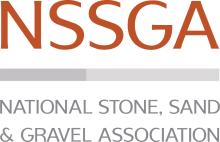
The decision potentially means EPA will need to rewrite its Waters of the United States (WOTUS) rule, which has led to permitting delays for transportation projects.
At issue in Sackett vs. EPA was whether the agency could require a permit for any area with a “significant nexus” to a navigable waterbody, such as a river, lake or stream. The EPA never defined “significant nexus,” confusing the entire transportation construction industry.
The Court called the “significant nexus” test “particularly implausible” and held the EPA has “no statutory basis to impose it.”
In their brief to the Court, the American Road & Transportation Builders Association (ARTBA) and the National Stone, Sand & Gravel Association (NSSGA) critiqued the “significant nexus” test, noting it has “no inherent limiting principles” and empowers federal agencies to assert federal jurisdiction “well beyond the limits set by Congress.”
ARTBA and NSSGA maintained that defining WOTUS in an expansive way improperly creates permit obligations for features such as roadside ditches, which serve the necessary safety function of collecting water during and after rain events. This type of overregulation serves only to delay critical infrastructure improvements and increases costs without providing any environmental benefits, the groups say.
“Today’s Supreme Court decision removes unnecessary and unsupportable impediments to transportation improvements across the country,” said ARTBA president & CEO David Bauer. “With Sackett as a guide, we urge the EPA to pursue common-sense strategies that complement our nation’s infrastructure and environmental goals.”
“Today’s opinion in Sackett v EPA is a victory for our industry and is a major step towards a more reasonable definition of WOTUS, which our members have struggled with for years and was exacerbated by the premature and confusing Biden administration rule. With the end of significant nexus, we hope that the agencies heed this decision and work for a truly durable rule,” said NSSGA President and CEO Michael Johnson. “A clearer WOTUS definition is necessary for our industry to provide the materials needed to build and modernise our country’s infrastructure in an environmentally friendly manner.”
ARTBA and NSSGA have been working together on the issue of CWA jurisdiction since 2005, along with other national association coalition allies. The groups have also been involved in federal district court litigation on the WOTUS rule since 2015. With the clarity provided by the Sackett decision, the groups will continue their efforts to repeal the WOTUS rule and work towards a clear definition of the CWA’s reach.
ARTBA brings together all facets of the transportation construction industry to responsibly advocate for infrastructure investment and policy that meet the nation’s need for safe and efficient travel.
NSSGA is the leading advocate for the aggregates industry. Its members – stone, sand and gravel producers and the equipment manufacturers and service providers who support them – produce the essential raw materials found in homes, buildings, roads, bridges and public works projects; NSSGA represents more than 90 percent of the crushed stone and 70 percent of the sand and gravel produced annually in the United States.





